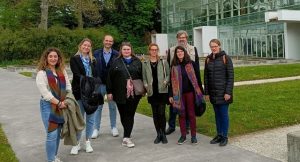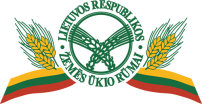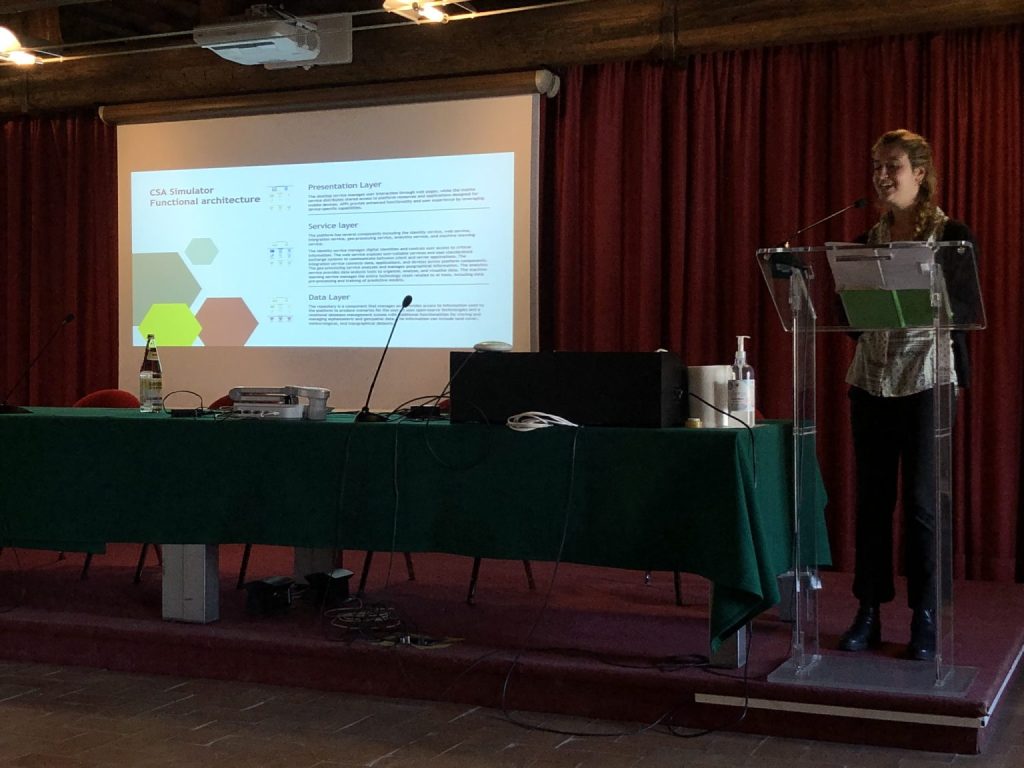On 27 April 2023, the final event of the Erasmus+-funded international project “FarmBox for Climate Change Mitigation” took place. It presented the project, its activities, challenges and results.
FarmBox project
The main objective of the project is to develop farmers’ skills in smart and environmentally friendly farming, to raise awareness of the challenges of climate change and to demonstrate the cost-effectiveness of smart farming. The project focused on digitising education in the agricultural sector. The project results aim to improve the digital literacy of teachers/advisors and facilitate the organisation of lessons/training courses.
The project started in 2021 and involved representatives of four organisations: the University of Padua (Italy), UptoEarth GmbH (Germany), the vocational training school IKASTEGIA TXORIERRI (Spain) and the Chamber of Agriculture of the Republic of Lithuanian. The project lasted for two years, during which four international partner meetings took place. The first partner meeting on the COVID-19 pandemic was organised remotely. The other meetings were held in Milan, Italy, and Bilbao, Spain. The final conference and the last partner meeting of the project took place on 17-18 April in Padua, Italy.
For two years, the four project partners have been developing training content on climate smart agriculture, providing background information and useful practices to improve farm management practices, taking into account biodiversity principles and adapting to climate change needs.
The project developed a comprehensive Massive Open Online Course (MOOC) on climate smart agriculture. The MOOC has two levels: beginner and advanced. In the beginner course, learners will be introduced to basic farming practices that are useful for mitigating climate change. The advanced course builds on the knowledge acquired in the beginners’ course by complementing the course with practical exercises that can be carried out in an online simulator that allows learners, farmers and students to simulate in a virtual environment climate-smart farming techniques and the benefits of their implementation in a given area.

Evaluation of project results
During the event, Ina Kalėdienė, Head of the Project Unit, presented the evaluation report. She, together with a group of young farmers and consultants from the Chamber of Agriculture, tested the simulator and the educational content developed by the project. The testing was organised online and took place on 12 April 2023. “External testing involving farmers and experts is a very important part of the project as it allows us to identify problems and bugs that the internal testing failed to find. It also allows us to assess the functionality and user experience of the project deliverable and to ensure the compatibility of the software. Overall, pilot testing helps us to ensure that the project deliverables are relevant, reliable, user-friendly and meet the needs of the intended audience, and that we are able to deliver the final product to the consumer without any bugs” – says Ina Kalėdienė.
After testing the project’s results, all participants were asked to fill in a short questionnaire to rate the MOOC course and the online simulator on a scale of 1 to 4 (1 being “strongly disagree” and 4 being “strongly agree”). After analysing the results, more than 60% of those who took part in the testing agree that the project’s outputs are relevant and that the course and the simulator are appropriate to improve the implementation of climate smart farming practices and the understanding of their impact on the environment and production.
After FarmBox project
“The tools developed in the FarmBox project will enable farmers to learn about different farming practices that contribute to climate change mitigation. I really hope that they will find it as interesting and useful to acquire this knowledge as we found it interesting to exchange experiences with our foreign colleagues. Of course, during the two years of working on this project, there have been various difficulties due to the lack of technological knowledge, because of the creation of video lessons that the learners will be able to watch when they study the course, and sometimes there have been misunderstandings due to the difference in languages and the difficulty of conveying the technical terms in a foreign language, but with the great support and help of the partners of the project, we have managed to resolve all these difficulties. I think that the biggest contribution to the project was made by the people who worked directly on the project, the project coordinators of each of the cooperating organisations, who attended all the meetings, shared their experience and knowledge, and carried out all the technical and organisational work. Of course, it is also very important to mention the work of the researchers in the project, who were responsible for preparing all the theoretical material. Their work will also be available when the final version of the online course is published. They were the ones who prepared the material for the educational content, created the video lessons, drafted the articles, collected the statistical material, etc. It is good to see that during the project friendships have been established and contacts have been kept for further cooperation and future projects. We are already planning to start a new project with one of the partners” – Viktorija Bujauskė, Senior Specialist of the Rural Development and Information Unit of the CARL, shares her thoughts on the project.
You will soon be able to see the results of this project. As soon as the final version of the online course is published, we will share the news with you.

